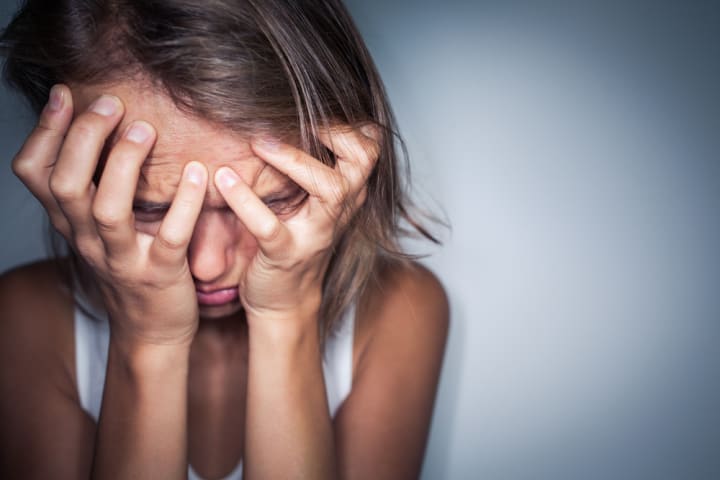Alternatives to coffee
Different ways to wake up in the morning

As well as spawning more memes than the cat who first had a cheeseburger, coffee is the single greatest ingredient for getting the world running. Without an early morning injection of caffeine, the world would be left floundering around in its pyjamas trying to rub sleepy dust out of its eyes until lunchtime.
More than fifty per cent of all adult Americans drink coffee at least once a day. That’s over 150 million people in America alone needing a wake-up kiss from Uncle Joe. That adds up to approximately 400 million cups of coffee drunk in the US per day. So, just how much coffee should we be drinking? According to the Food and Drug Administration (FDA), the recommended maximum daily intake of caffeine per adult is 400 mg a day.
Where do we get our caffeine?
- A Starbucks double shot espresso: 120 mg of caffeine
- Starbucks Grande Cappuccino: 150 mg of caffeine
- Starbucks Grande Coffee: 310 mg caffeine
- Bulletproof Coffee: 145 mg caffeine
- Cappuccino: 154 mg caffeine
That means that as long as you aren’t super loading your coffee, you can safely enjoy about three a day.
But what is it about coffee that we find so irresistible?
What’s so good about coffee?
Helps weight loss: Can drinking coffee help you lose weight or stop you from putting it on? Apparently, yes, it can. Caffeine suppresses your appetite and since it stops you from being hungry, it’s going to help you lose weight in some way but more than that it also stimulates thermogenesis. That means your body generates more heat and energy from digesting food, which is why it’s a good idea to drink coffee after you’ve finished a meal.
Improves mental alertness: According to researchers at Johns Hopkins University, drinking caffeine after studying can help boost long-term memory retention. Which explains why students guzzle down gallons of it in the run-up to exam time.
Wakes you up: Caffeine blocks adenosine, the inhibitory neurotransmitter that gets you to sleep at night, this increases the production of other neurotransmitters like norepinephrine and dopamine leading to enhanced firing of neurons.
Gets your brain working: Together with memory and mood, caffeine also leads to heightened vigilance, energy levels, reaction times and general mental function.
Improves physical prowess: By Increasing epinephrine (adrenaline) levels in your blood, caffeine prepares your body for physical exertion.
Possible health improvements: Certain studies have also suggested a daily caffeine intake might reduce your risks of Type 2 Diabetes, Alzheimer’s Disease and Dementia, and Parkinson’s.
Makes you feel great: “Hey, it’s coffee”. Coffee is also likely to reduce your susceptibility to depression and generally make you feel happier.
But it’s not all beans and smiles. Too much coffee, like anything else, can leave you suffering from the daytime equivalent of a caffeine hangover.
What’s could be bad about coffee?
Not being able to sleep: the double-edged sword of coffee waking you up in the morning is that it can also interfere with you getting to sleep. A cup of coffee drunk up to six hours before going to bed can reduce sleep by up to one hour.
Increased anxiety: Caffeine boosts your adrenaline, your fight or flight response, so in people who are already prone to anxiety it can increase the probability of panic attacks.

Fatigue: What goes up must come down, and the same is true of coffee drinkers. Getting an energy boost from caffeine means that at some point you’re going to come down and pay for that caffeine high you enjoyed.
Is caffeine addictive?
If you do decide to give caffeine the boot, are you going to suffer any negative withdrawal effects? In short, not really. I went one week without last year, I remember being a bit tired and miserable the first day but after that, I just felt tired and missed the ups that came with a good cup of coffee.
What are the alternatives to caffeine?
Kombucha: Made by fermenting black tea with bacteria, yeast and sugar, kombucha may sound weird, but it works. The bacteria and yeast colony is often referred to as a SCOBY and as well as giving you a pick-me-up, kombucha also contains probiotics, acetic acid and antioxidants. Studies have shown that kombucha may boost your immune system, and improve cholesterol levels.
It gives a kick in the morning, though not quite as fierce as the one coffee gives. While you can make kombucha at home by yourself, it’s not recommended unless you know what you’re doing, and there are many varieties available in the shops now.
Working out: When the first lockdown hit and everyone was scared to step out of their front door, online workout videos exploded. The benefits of HIIT workouts don’t just help you stay in shape, but also get you thoroughly awake without the need to go anywhere near a coffee pot.
I started out with Joe Wicks videos as I took it easy and started doing PE with the kids. I’ve now discovered a whole range of YouTube channels with evermore demanding and strenuous activities designed to get me sweating and panting like a maniac first thing in the morning.
Cold showers: another discovery from lockdown and YouTube video suggestions. The idea of jumping straight into a cold shower in the morning might seem about as appealing as having your toenails pulled out, but it works. The chief proponent of the power of cold is a Norwegian by the name of Wim Hof, also known as the IceMan. While I won’t be following the master’s lead and scaling Mount Everest in just a pair of shorts anytime soon, I do sometimes jump straight into a cold shower first thing in the morning. This is the ultimate way to wake up in the morning, it doesn’t just chase out the cobwebs away, it finds the spider and gives him a damn good kicking as well.
Much to the astonishment of my family, I’ve been doing the cold showers on and off for the last three months and while I still can’t say I look forward to it, there are times when I find myself craving the hit of the cold.

Lemon water: Definitely the mellowest caffeine switch-out on the list. Simply squeeze a lemon and pour the juice into a half litre of water. You’re not going to get any immediate buzz of it but there are no calories in there either. Lemon juice is also a good source of vitamin C, which is going to give your immune system a boost and protect your skin from sun damage since it’s an antioxidant.
Probably not the wake-up you need if you’ve got a Zoom meeting first thing, but it is a light way to start if you’re going to be doing a workout as well.
About the Creator
Jodie Adam
My advice to you is get married: if you find a good wife you'll be happy; if not, you'll become a philosopher.
- Socrates
www.jodieadam.com






Comments
There are no comments for this story
Be the first to respond and start the conversation.